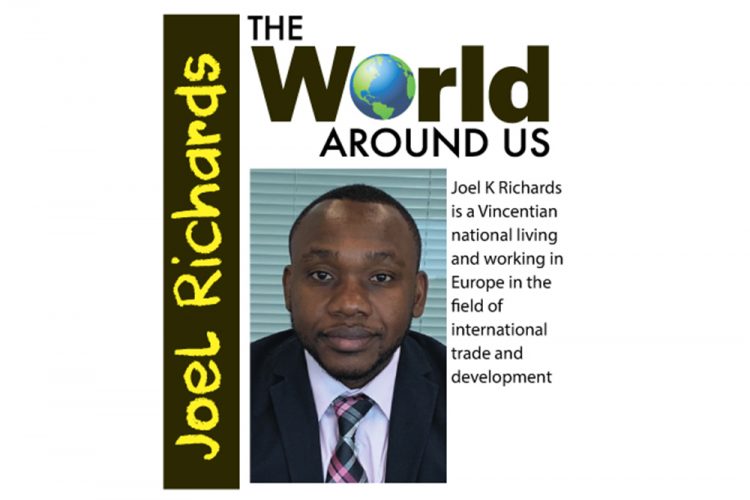Geopolitics coming home to roost

In my last article, I shed some light on some of the developments that are likely to emerge as the 2020s progress. Two of the developments I spoke about involved both the United States (US) and China – bilateral geopolitical tension and competing versions of capitalism. The visit of US Secretary of State, Mike Pompeo, to Jamaica on 22 January in which critical remarks were made in relation to China’s role in the Caribbean as well as China’s retort, have brought early confirmation that tension between these two world powers is set to be an enduring theme of this decade and perhaps many decades after.
Already, it is clear that the Caribbean will be a staging ground for US-China tension. Of course, the region is no stranger to superpower rivalry, having had a front row seat to near-war scenarios between the US and the Soviet Union at the height of the Cold War. For now, there is little threat of military confrontation between the US and China, at least in this part of the world. However, what we are more likely to see in the region is the unfolding of the strategic competition between the US and China with respect to technological leadership, trade, and economic and political influence.
Over the years, China’s engagement in the Caribbean has increased on multiple levels. Already, several Caribbean countries are part of China’s ambitious Belt and Road Initiative. This US$1 trillion initiative is anticipated to enhance connectivity between China and the participants by improving transportation routes, increasing trade and investment, and building out infrastructure and commercial projects. Furthermore, in recent years, China’s banks have provided more financing to Latin America and the Caribbean (LAC) than was provided by the World Bank and the Inter-American Development Bank combined.
On the trade front, the Caribbean Development Bank (CDB) has calculated that among its Borrowing Member Countries (BMCs), “total merchandise trade with China, which includes imports and exports, increased from USD 167mn in the year 2000, to USD 1,731mn in the year 2014, which corresponds to an 18.2% annual growth rate.” On investment, an overview of inward foreign direct investment (FDI) inflows from China demonstrates that between 2001- 2016, several Caribbean countries were among the largest recipients of Chinese FDI in the LAC region. Beyond trade and investment, China’s development assistance to some countries in the region in the form of debt forgiveness, soft loans and grants has also been evident.
During his visit to Jamaica, Mike Pompeo also outlined his and presumably the Trump Administration’s preferred modality for engaging Caribbean countries. Pompeo spoke of getting more regional countries to benefit from US private sector investment as well as support to the Caribbean private sector through a new development finance corporation (DFC). Of course, the US continues to be the leading trade and FDI partner for most Caribbean countries, notwithstanding China’s growing ties with the region.
At the height of the Cold War, many countries were forced to choose between the US-led liberal international order and the Soviet-led communist bloc. Cuba is still paying a heavy price for its choice to align with the Soviets while Grenada paid the ultimate price through the blood of its citizens and the loss of its sovereignty as a result of the US-led invasion. This time around, we are seemingly being given a “false choice” between the US and China and I use this terminology to convey the sentiment that for us in the Caribbean, our choice of diplomatic and economic partners needs not be a zero-sum exercise.
Each country, no matter its size, has a fundamental right to enjoy and exercise autonomy and this is a right that should be respected. Some countries have a formal relationship with China, and this deserves respect. Others have formal relations with Taiwan, and this too deserves respect. Some are on good terms with the US, some are on good terms with both the US and China or alternatively, have poor relations with both. At times, interests intersect and at other times they diverge. However, no matter the state of affairs, that right of every sovereign country to choose its friends and determine its interests should not be violated.









